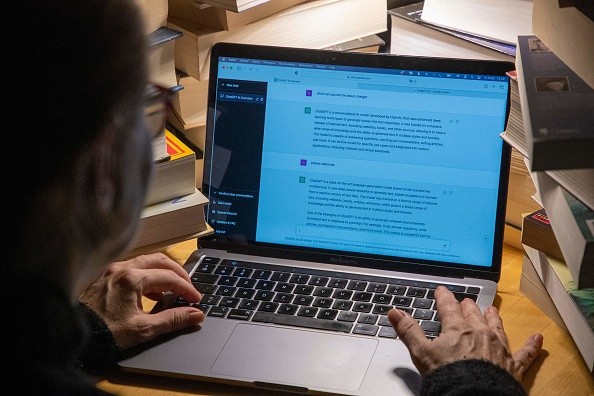
The US Copyright Office has released guidelines on the question of intellectual property rights for the contents generated by artificial intelligence (AI) in this age of ChatGPT.
The federal agency released updated policies this week about AI and copyright law, indicating that it is willing to consider assigning ownership to AI-generated works on a "case-by-case" basis.
According to Copyright Office director Shira Perlmutter, "The Office will consider whether the AI contributions are the result of 'mechanical reproduction' or instead of an author's 'own original mental conception, to which [the author] gave visible form."
What is the basis?
Whether or not an individual's AI-generated material is copyrighted will essentially rely on the person's method of content development, as Mashable reported.
In the same way we saw with ChatGPT, you may instruct an AI tool to create a wide variety of content, such as text compositions, a cover letter for a job, a crochet pattern, and even fake medical data. However, the Office will not recognize the work created by generative AI as copyrighted since the traditional aspects of authorship are selected and implemented by the tech.
Simply put, the result is not considered creative when an AI interprets and expresses the work without human input.
Yet, a user may pick or organize AI-generated content in a sufficiently creative fashion. At this point, it becomes an original piece based on the user's creativity and is, therefore, subject to copyright.
Last but not least, what matters is the degree to which the human has creative influence over the work's expression.
AI and Copyright
Obviously, this may sound very vague and hard to understand. Copyright law has never before ventured into this area, but the unexpected rise of generative AI has compelled the Office to do so.
Recent years have seen a number of vexing copyright disputes, such as the one surrounding the origin of the now-famous "selfie" snapped by a monkey. In its final decision, the agency decided against copyright protection, citing the need for copyrighted works be the product of human ingenuity. In that instance, it was quite evident that humans were not animals.
The distinction between human and machine-generated work is becoming more blurry as AI chatbots improve.
Despite the sentence's convoluted nature, Mashable said it is very clear-cut in principle that the Copyright Office will not record works generated by a machine or simple mechanical system that functions randomly or automatically without any creative input or participation from a human author. Yet, the use of AI to "brainstorm" ideas or "collaborate" on creative work is still in its infancy and carries a certain amount of confusion.
After laying out the current state of affairs in AI and copyright, Perlmutter closed his remarks by adding, "The Office continues to monitor new factual and legal developments involving AI and copyright."

ⓒ 2025 TECHTIMES.com All rights reserved. Do not reproduce without permission.




